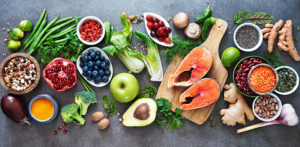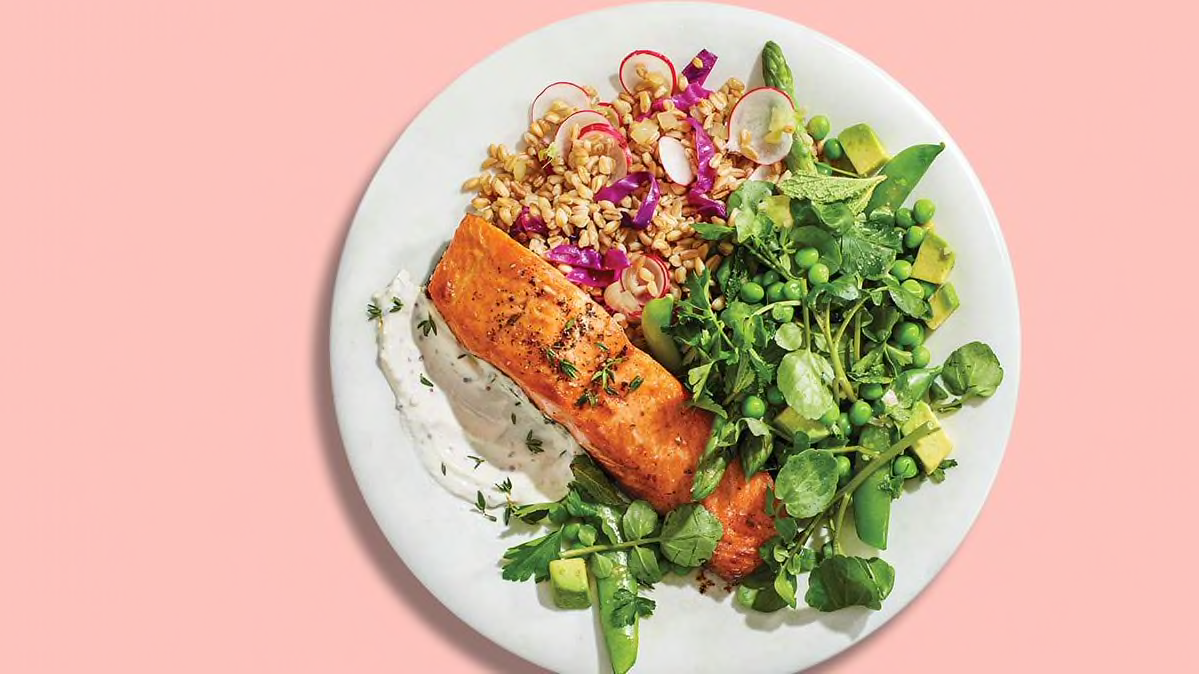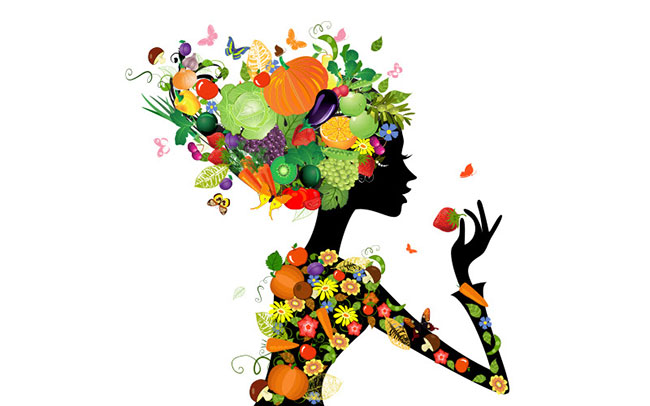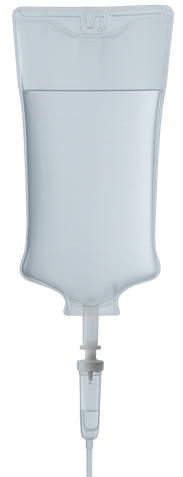Foods That Fight Fatigue
Some easy dietary changes can boost your energy and improve overall health.
L ow energy is a common complaint in doctors’ offices, and older adults are especially vulnerable.
“Fatigue is largely underreported in the elderly,” says Joan Eckerson, Ph.D., professor and chair of the department of exercise science and prehealth professions at Creighton University in Omaha, Neb. “By some estimates, as many as 50 percent of older adults suffer from some sort of mild fatigue.”
Underlying health conditions and medications can cause that tapped-out feeling, as can loneliness, anxiety, lack of exercise, boredom, and stress-induced changes to your normally healthy habits (including eating more junk food and drinking more alcohol).
The coronavirus pandemic may have exacerbated some or all of these factors, but you have an excellent tool to help fill your tank.
“From an ‘energetic’ standpoint, nutrition is one of the most helpful modifiable behaviors that can help an older person feel better,” says Wayne Campbell, Ph.D., a professor in the department of nutrition science at Purdue University in West Lafayette, Ind.
The following tips will help shore up your diet and boost your energy reserves.
Choose Slow Carbs
Carbohydrates are the main fuel for your muscles and brain, but to keep energy up, most of the carbohydrate foods you eat should be whole grains, legumes, fruits, and vegetables.
Full of nutrients, including fiber, they supply a steady release of energy in the form of blood glucose.
“When you’re older, your body doesn’t process carbohydrates as well as it used to,” Campbell says. That means your pancreas may have to pump out more insulin to handle the carbs you eat, especially ones that aren’t whole-grain.
Cereals, white rice, crackers, sugary foods, and other refined carbs can cause blood sugar to spike and then drop, which can zap your energy.
Consume the Right Calories
Eating too many or too few calories can affect energy.
Obesity, a problem for well over one-third of older adults, makes it difficult to get around. And people who are obese may be eating too many foods made with refined carbs, especially sugars, and unhealthy fats.
In general, you need fewer calories to maintain weight than when you’re younger, Campbell says, so there’s less room for junk. “The general Western diet is a contributing factor to feeling less energetic,” Campbell says. Minimizing sweets and highly processed snacks creates room for healthy options.
Enhance Your Appetite
On the other end of the spectrum is undernutrition.
Decreased appetite, an inability to chew well, dry mouth, loneliness, and lack of access to high-quality food are just a handful of the problems that contribute to the “anorexia of aging,” characterized by weight loss and fatigue.
If you don’t have much of an appetite, eat smaller portions more often instead of large meals. If you’re underweight, look to healthy foods that aren’t overly filling but add calories. For example, use olive oil on vegetables or drizzle over soups or pasta, mix nut butter or milk powder into smoothies, slice avocado into salads, choose whole-milk yogurt, and snack on nuts and dried fruits.
Beat Inflammation
Many health conditions, such as type 2 diabetes, heart disease, and cancer, are associated with fatigue and chronic inflammation.
It’s believed that tamping down inflammation can improve low energy levels that result from these diseases, according to a 2019 review article published in the journal Nutrients, and help control some of the diseases themselves. Whole grains, fruits and vegetables, legumes (beans, lentils), nuts, fish, and plant oils, such as olive and avocado, are rich in antioxidants, healthy fat, and fiber, which are all anti-inflammatory. 
These foods are also at the core of the Mediterranean diet, which some studies have linked to improved energy. In addition to its anti-inflammatory effect, the diet may support the microbiome (the collection of healthy bacteria and other microbes that live mostly in the gut) in such a way as to enhance healthy aging.
For example, researchers at University College Cork in Ireland found that older people following a Mediterranean diet for a year had a more diverse microbiome, were less likely to be frail, and had improved cognition factors associated with fatigue.
And dark leafy greens, celery, beets, and other vegetables contain nitrates—which are thought to help support the mitochondria, the part of the cell that produces energy—and may increase blood flow. (You may have heard that nitrites and nitrates in deli meat are unhealthy, but that has to do with the interaction between the compounds and the protein in the meat.)
Pump Up the Protein
Many people cut back on protein when they start trimming their diets, but this important macronutrient is key for energy.
Protein provides the building blocks for muscles. Muscle mass is important for staying physically active (which also improves energy) and good health in general. Muscle loss with age can lead to a condition called sarcopenia, which lowers your stamina and increases your risk of a variety of health problems.
“I encourage older adults to consume the same amount of protein-rich foods that they were eating as a younger person but be mindful about the quality of those foods,” Campbell says. Older adults should aim for about 0.6 gram of protein per pound of body weight. (For a 150-pound person, that’s 90 grams of protein per day.) High-quality sources include lean meat and poultry, beans, soy and tofu, nuts, dairy, and eggs.
To help your body use that protein more efficiently, spread your intake throughout the day, aiming for 25 to 30 grams at each meal, including breakfast and lunch, two meals that tend to be lighter in protein. A 3-ounce cooked chicken breast has about 25 grams of protein, a cup of Greek yogurt has 23 grams, a cup of cooked quinoa contains 8 grams, and an egg has 6 grams.
Stay Hydrated
Dehydration can contribute to poor sleep and fatigue, Eckerson says.
“The thirst mechanism is blunted as you get older, which means you may not want to drink as much as you should,” she says.
While there aren’t any hard-and-fast hydration rules for older adults, the general guideline (for men, about 15.5 cups of fluid per day; women, 11.5) is a good one to shoot for, and it’s especially important to drink up in warm summer months. Remember, foods that are high in water (such as many fruits and vegetables) and other liquids also count.
Use Caffeine Strategically
This “drug” can contribute to poor sleep if you consume it late in the day but can help pep you up in the morning.
Eckerson advises keeping your intake below 400 mg per day (12 ounces of coffee has nearly 150 mg). If you’re not used to caffeine, it could aggravate bladder problems or make you urinate more often, so go easy.
3 Nutrients You Need Now
Older adults are at risk for some common nutrient deficiencies that lead to poor energy, but you shouldn’t self-diagnose. Check with your doctor, who will run tests to find out whether you need supplementation.
Iron: According to an article in the American Journal of Hematology, anemia is common in older adults. At least 10 percent of those 65 and older are thought to have it—almost 40 percent of men and 22 percent of women 85 and older. Low iron is a common type of anemia; red meat, eggs, and spinach are good food sources, but you may need more.
Magnesium: This hardworking mineral is important for energy and heart, nerve, and muscle function, among many other things. Almost half of Americans—and 70 to 80 percent of those older than 70—fail to meet their daily magnesium needs. Whole grains, nuts, legumes, and many vegetables contain magnesium.
Vitamin B12: Up to 15 percent of people may be running low on this crucial vitamin. Because of changes in the gastrointestinal tract as you age, your body is less able to absorb vitamin B12 from foods, and a deficiency can lead to fatigue and cognitive changes, among other problems. Chronic use of acid-blocking medications can affect B12 absorption, too.
Currated Content: Consumer Reports
Diet and Nutrition Managment/ Supplments available at LotusRain Naturopathic Clinic








